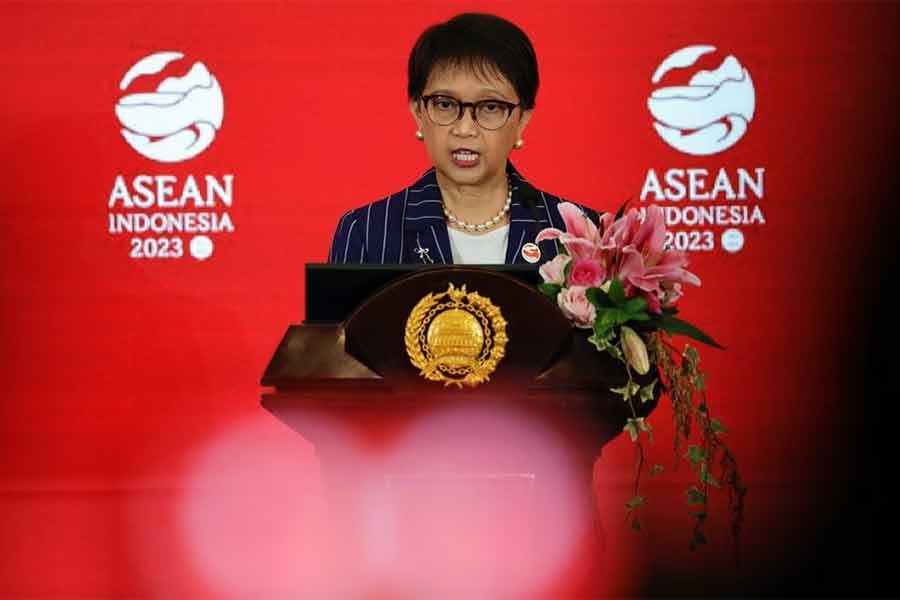Indonesia plans to intensify talks with China and other Southeast Asian countries to finalise a code of conduct (COC) for the disputed South China Sea, its foreign minister said on Saturday, amid escalating tensions in the strategic waterway.
Indonesia’s Foreign Minister Retno Marsudi was speaking in Jakarta at the close of a meeting between foreign ministers from the Association of Southeast Asian Nations (ASEAN), the 10-member regional bloc chaired by Indonesia this year, reports Reuters.
"ASEAN's outlook on the Indo-Pacific was central to the discussion," she said. "We also discussed the COC, the commitment of members to conclude the negotiation of the COC as soon as possible."
Negotiations on the COC - a proposed framework to help tackle territorial and maritime disputes in the waterway - have stalled for years as some member states prioritised bilateral ties with China over a regional consensus.
Indonesia is preparing to host a round of negotiations on the COC this year, the first taking place in March, the foreign minister said.
China claims jurisdiction over almost the entire South China Sea based on its U-shaped "nine-dash line", a boundary found to have no legal basis by the Permanent Court of Arbitration in the Hague in 2016.
Earlier this week, the Philippines granted the United States greater access to its military bases, in part due to Beijing's extensive claims in the resource-rich maritime area.
ASEAN members the Philippines, Vietnam, Malaysia and Brunei all have overlapping claims with China in the strategic waterway.
Indonesia is not an official claimant but has faced pushback from China over its exploration of oil and gas reserves in the North Natuna Sea. Last month the country sent a warship to the area to monitor a lingering Chinese coast guard vessel.
"New approaches" would be explored by all ASEAN member states and Chinese counterparts to make progress on the COC, Sidharto R. Suryodipuro, director of ASEAN cooperation at Indonesia's foreign ministry, said on the sidelines of the event.
"What's important is that all agree that this should be an outlook that is implementable and in accordance with international law," he said.
Separately, ASEAN members wrapped up talks having only reiterated support for the bloc's five-point peace plan on Myanmar which includes the cessation of conflict in the conflict-torn nation and the start of dialogue.


